
Latest Coronavirus Disease COVID 19 News and Research
With schools starting online, vaccinations head for recess
As co-director of school-based health centers at Bassett Healthcare Network, the pediatrician oversees about 21 school-based health clinics across the region — a poor, rural area known for manufacturing and crippled by the opioid epidemic.
Research suggests school reopenings contribute to rise in COVID-19 cases
A study recently published on the preprint server medRxiv in September 2020 by researcher Richard Beesley at Juvenile Arthritis Research reports on the impact of school reopenings on the spread of the virus.
Avacta to launch Affimer-based ELISA test for SARS-CoV-2 virus detection
Avacta Group plc, the developer of Affimer biotherapeutics and reagents, is pleased to announce that it will launch an ELISA laboratory test for the SARS-CoV-2 spike protein to support global research efforts into the coronavirus that causes COVID-19.
Limited gut inflammation in COVID-19
A new study by researchers at the Icahn School of Medicine at Mount Sinai and published on the preprint server medRxiv in September 2020 shows that gut infection with this virus produces primarily mucosal immunity but also a limited inflammatory response.
Study finds strong T cell responses in patients recovered from COVID-19
Oxford University researchers have found that natural infection with COVID-19 produces a robust T cell response, including inducing T cell ‘memory’ to potentially fight future infections.
Renowned Harley Street hospital performs pioneering dual breast surgery
King Edward VII’s Hospital – located within the Harley Street Medical Area – have announced an achievement in breast reconstruction surgery, having performed their first DIEP flap reconstruction with Lymphatic Microsurgical Healing Approach for prevention of secondary breast cancer related lymphedema.
Antibody-mediated platelet death linked to COVID-19 severity
A new study by University of Tuebingen researchers shows the strong association between platelet apoptosis and the thrombotic manifestations that may underlie critical COVID-19 illness.
Scientists describe various dynamic structures of the SARS-CoV-2 spike protein
Early in the pandemic, scientists uncovered the role of the ACE2 receptor in SARS-CoV-2, the virus that causes the coronavirus disease (COVID-19). The severe acute respiratory syndrome coronavirus 2 (SARS-CoV-2) spike protein and the angiotensin-converting enzyme 2 (ACE2) receptors act as a lock and key for cell infection.
PI3K/mTOR and topoisomerase inhibitors suggested as candidates to reduce expression of ACE2
A recent study published in the preprint server medRxiv in September 2020 shows that the already approved drug families called P13K/mTOR and topoisomerase inhibitors may be useful in reducing individual susceptibility to the virus.
Viruses play a key evolutionary role in mammals' ability to reproduce and survive
As the world scrambles to control the growing COVID-19 coronavirus pandemic, new research in Nature Structural & Molecular Biology shows viruses also play a key evolutionary role in mammals' ability to reproduce and survive.
SARS-CoV-2 containment and elimination strategy will require long-term population-wide prevention measures
By introducing a model that reveals long SARS-CoV-2 transmission chains and inadequate passive surveillance systems, a new medRxiv* preprint paper shows that bringing the infection completely under control will have to rely on presumptive, stringent, longer and more burdensome population-wide prevention measures already employed against community transmission.
Important research on SARS-CoV-2 proteins using proximity labeling
A team of Canadian scientists has recently discovered a wide-range interaction between severe acute respiratory syndrome coronavirus 2 (SARS-CoV-2) and host proteins using proximity-dependent biotinylation approaches.
COVID-19 caused substantial disruptions to essential health services in most countries
The COVID-19 pandemic caused substantial disruptions in essential health services in 9 out of 10 countries surveyed by WHO.
Pooled saliva testing increases COVID-19 testing capacity
Now, a new study by researchers at Yale School of Medicine and published on the preprint server medRxiv in September 2020 shows that pooled saliva samples can save resources and increase testing capacity, making a significant difference in the management of the pandemic.
D-dimer - A sensitive novel biomarker of COVID-19 mortality
Now, a new study published on the preprint server medRxiv* reports the use of D-dimer in predicting the risk of mortality in COVID-19.
Rehabilitation speeds coronavirus recovery
Now, a team of researchers at the University Clinic in Innsbruck in Austria has found that the long-term lung and heart damage in coronavirus disease (COVID-19) patients who recovered tend to improve over time.
Using proteins to track SARS-CoV-2 infections through wastewater
A new study published on the preprint server medRxiv* in September 2020 describes the measurement of severe acute respiratory syndrome coronavirus 2 (SARS-CoV-2) proteins in wastewater as a reliable way to track the virus in the community.
Novel RNA vaccine from Arcturus Therapeutics protects mice against SARS-CoV-2
A new study published on the preprint server bioRxiv in September 2020 reports a novel RNA vaccine platform that shows robust protection against severe acute respiratory syndrome coronavirus 2 (SARS-CoV-2) infection in mice and performs much better than a conventional mRNA vaccine. This could allow single-dose immunization, allowing progress towards global vaccination.
Seasonal influenza and COVID-19 risk
In a new study published on the preprint server medRxiv, researchers from Laval University and McGill University in Canada reviewed evidence from 18 relevant studies on a possible interaction between influenza vaccines on non-influenza respiratory disease (NIRD).
Study shows SARS-CoV-2 cell receptor is a novel target of the gamma-secretase enzyme complex
Based on structural similarities with other targets of the gamma-secretase system, researchers from Columbia University Irving Medical Center in the United States show that the SARS-CoV-2 receptor for cell entry may be affected by its proteolytic activity. Their results are currently freely available in a bioRxiv preprint paper.


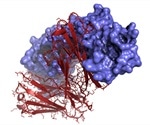
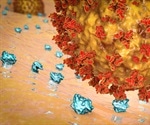


_bdceb65b2f504e21835184fec94dd615-150x125.jpg)
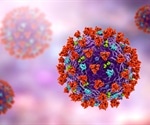
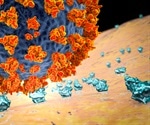
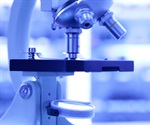
_fc591405bca24eccb732c77ab213fd48-150x125.jpg)
_bb12d7b560954485b7cd6185940925f8-150x125.jpg)

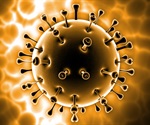
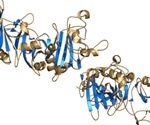
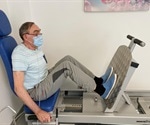

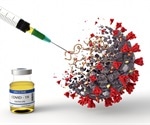
_7e3c59326edc4d42ac5e50601e8dd1a7-150x125.jpg)
_000f1aee1ac044a99fdfb527e8583a9b-150x125.jpg)
































No hay comentarios:
Publicar un comentario